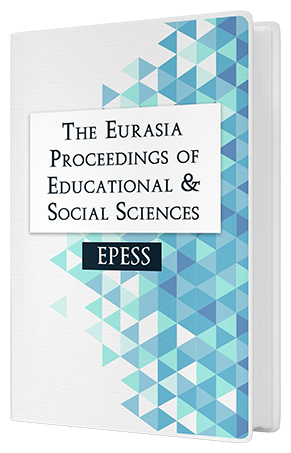The Influence of Indirect Corrective Feedback on the Linguistic Accuracy of Adjectival Clauses in an EFL Context
DOI:
https://doi.org/10.55549/epess.1223235Keywords:
Adjective, Clauses, Indirect, Corrective, FeedbackAbstract
The goal of this research was to find out which corrective feedback technique would be most effective in some EFL context. Concisely, we wanted to find out whether the feedback techniques commonly used in this context (namely indirect feedback and oral meta-linguistic explanation) were structure-, learner-, and task-dependent. We chose to experiment with all the functional uses of one linguistic structure, namely adjective clauses. Whereas the experimental group received two types of feedback (indirect coded written corrective feedback and oral meta-linguistic feedback), the control group received no corrective feedback at all on the targeted features. Findings showed that the experimental group’s linguistic accuracy in using adjectival clauses improved far better than that of the control group. However, this improvement, quite expectedly, declined gradually over the course of time; hence the experimental group’s linguistic accuracy was a little better on the immediate posttest than on the delayed post-test. Our argument was that a combination of indirect feedback and meta-linguistic explanation would be rewarding for adult learners with low-proficiency levels probably because such feedback techniques require them to exert maximum cognitive, especially when getting engaged in a problem-solving process.Downloads
Published
Issue
Section
License
Copyright (c) 2022 The Eurasia Proceedings of Educational and Social Sciences

This work is licensed under a Creative Commons Attribution-NonCommercial-ShareAlike 4.0 International License.
The articles may be used for research, teaching, and private study purposes. Any substantial or systematic reproduction, redistribution, reselling, loan, sub-licensing, systematic supply, or distribution in any form to anyone is expressly forbidden. Authors alone are responsible for the contents of their articles. The journal owns the copyright of the articles. The publisher shall not be liable for any loss, actions, claims, proceedings, demand, or costs or damages whatsoever or howsoever caused arising directly or indirectly in connection with or arising out of the use of the research material. All authors are requested to disclose any actual or potential conflict of interest including any financial, personal or other relationships with other people or organizations regarding the submitted work.




